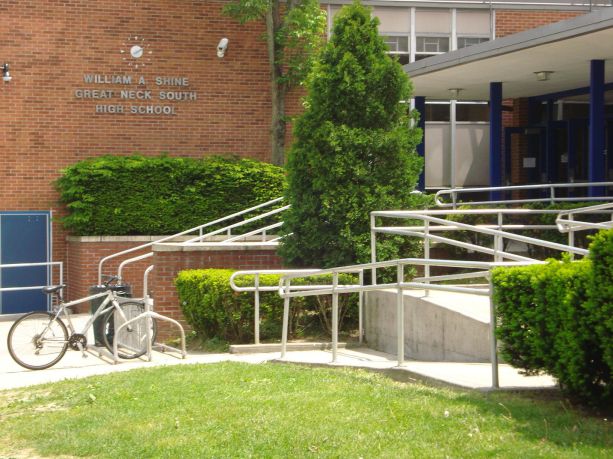A recent nationwide ranking suggests there isn’t a strong relationship between North Shore school districts’ budgets and the strength of their schools.
Five of the North Shore districts — Great Neck, Port Washington, Roslyn, Manhasset and Herricks — placed in the top 200 in the nation on Niche.com’s list of the top school districts in the U.S. East Williston schools ranked 259th, Sewanhaka high schools ranked 1,030th and Mineola placed 1,446th.
Most high schools within those districts ranked in the top 1,000 on Niche’s ranking of public high schools, including Paul D. Schreiber High School in Port Washington (89th); Roslyn High School (124th); Manhasset Secondary School (148th); Herricks High School (224th); the Wheatley School (451st) and Floral Park Memorial High School (932nd).
“When our school is recognized for high achievement it is a testament to the hard work of our entire staff, and of course, our students,” Schreiber principal Ira Pernick said.
Released in November, Niche’s lists drew from local, state and federal data as well as student and parent surveys to rank more than 12,000 school districts and more than 16,000 public high schools based on several criteria.
Niche’s academic “score,” derived from state test scores, Advanced Placement course data, graduation rate, students’ academic feedback and other factors, carries the most weight for both rankings. Other factors include health and safety, student culture and diversity, availability of extracurricular activities and overall parent and student experience.
Great Neck, which led the way in spending this year with $33,824 per pupil, was No. 28 on the school district list, the highest ranking of eight North Shore districts with high schools.
The Mineola school district, however, trailed Great Neck in per-pupil spending by about $600, but was 1,446th on Niche’s list, the lowest among the North Shore districts.
Similarly, Great Neck South and Great Neck North high schools placed 23rd and 112th respectively on Niche’s ranking of more than 16,000 public high schools, while Mineola High School was No. 2,159.
With a tax levy of nearly $200 million for a district of 6,399 students, Great Neck’s resources help keep class sizes small, an important factor in the high rankings the district has received, South High School principal Susan Elliott said.
To North High School principal Bernard Kaplan, though, the district’s culture parents have a lot of faith in public education.
“There’s a real belief that education’s important and that learning is important and that thoughtfulness is important, and that gives great support to the public schools, more so than the money,” Kaplan said. “Although we need the money, don’t get me wrong.”
Efforts to reach Mineola school Superintendent Michael Nagler and Mineola High School principal Whittney Smith were unavailing.
Most Sewanhaka district schools ranked lower on the list.
Elmont Memorial High School placed 2,301st, New Hyde Park Memorial High School 2,497th, Sewanhaka High School 5,077th and H. Frank Carey High School 5,615th.
With a $22,040-per-student budget this year, the lowest expenditure among North Shore districts, Sewanhaka was the only district where Niche rankings aligned with per-pupil spending. Elsewhere, there seemed to be little to no correlation.
For example, the Port Washington district was fifth among the eight districts in per-pupil spending, but got the second-highest rank on Niche’s list.
Efforts to reach principals at Sewanhaka and Floral Park Memorial High Schools were unavailing.
Per-pupil spending numbers can be “deceiving,” Kaplan said, because they can “give the appearance of an even playing field” but don’t give a full breakdown of expenses that may affect some districts and not others.
Many school administrators have said lists like Niche’s shouldn’t carry much weight because there are so many different rankings that evaluate so many different criteria.
Kaplan said rankings “unfortunately and wrongfully” affect perceptions and property values, and can invite “invidious comparisons” between different schools and districts.
“I suppose they mean something to somebody; they don’t mean much to me,” he said. “They’re part of something that I don’t really support. What we care about and what we support is that every single child’s a miracle.”

